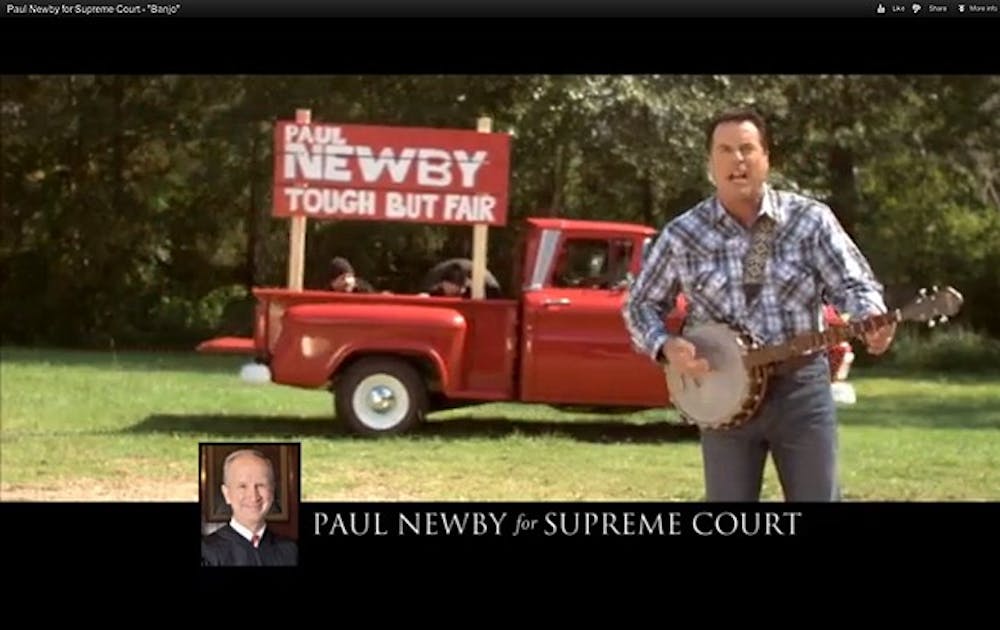North Carolina is one of 22 states that holds elections to select its supreme court justices, a controversial policy that some critics say corrupts the state’s judicial system.
The electoral process allows North Carolina voters to select their supreme court justices in nonpartisan races, which are open to campaign funding. The influx of cash in support of judges raises questions about whether campaign donations endanger the impartiality of the candidates. Others argue, though, that any system of appointing judges will contain some bias, but that bias is minimized in an open election. The state general assembly may consider reforming judge selection in its upcoming session.
Law Professor Paul Carrington said judicial elections are a bad idea because if a candidate receives a large campaign contribution, he or she will likely become indebted to the donor.
“The distinction between those campaign contributions and bribes is marginal,” he said.
Judicial race funding came to public attention this past election season. North Carolina Supreme Court candidate Paul Newby, Trinity ’77, won re-election for a second eight-year term. His campaign was given a boost by spending from outside organizations called super PACs, which spent nearly $2.5 million on his behalf, much of which came from Republican and conservative groups, The Charlotte Observer reported.
The fundraising helped to fund campaign advertisements including an attenion-grabbing banjo theme-song promoting Newby as an arbitrator of “justice tough but fair.”
Newby warned against automatically assuming corruption based on the current electoral system.
“What happens when an individual is appointed by a governor of a particular political party? Have they been bribed?” Newby said in an interview. “Whether you have an appointed or elected system, it seems to me that you’re going to have politics involved.”
When judges are appointed, they are only accountable to the people who appointed them, not to the people of the state, Newby said. Having an open election is more meritocratic and can decrease the bias in appointment by an individual or small group.
Others, such as Michael Pelle, a freshman studying political science, find fault with the idea of electing justices because the role of the judiciary is to check and balance the majority, not to speak for it.
“State supreme court justices are not charged with upholding the majority’s interest—it is rather their duty to ensure that the laws supported by the majority are in fact constitutional.”
Nonpartisan elections also can provoke “under-voting” due to ballot confusion, said Rep. David Lewis (R-Harnett). Judicial qualifications can be difficult for voters to assess, and frequently voters who do not know which party the judge candidates align with choose not to vote on that part of the ballot.
“We’re definitely going to have to address how judges are selected,” Lewis said. “I can’t think of any possible way it can be worse than it is now.”
Mac McCorkle, former Democratic political consultant and associate professor of the practice of public policy, said that it would be better to change the judicial selection process to one of appointment rather than election, but he said a hybrid of the two would be a more realistic fix.
Both Lewis and McCorkle hope that the upcoming North Carolina General Assembly will find a new method of judge selection. They preferred a system called retention elections, which Newby himself favors, where a judicial appointment made by an unbiased committee is brought to the Governor for appointment, and the judge later stands for an election after a certain amount of time to diminish undemocratic processes and corruption. This would make it possible for the electorate to remove a judge who was not satisfying his responsibilities, but would minimize the role of campaign funding in the initial selection.
Tiffany Lieu contributed reporting.
Get The Chronicle straight to your inbox
Signup for our weekly newsletter. Cancel at any time.

